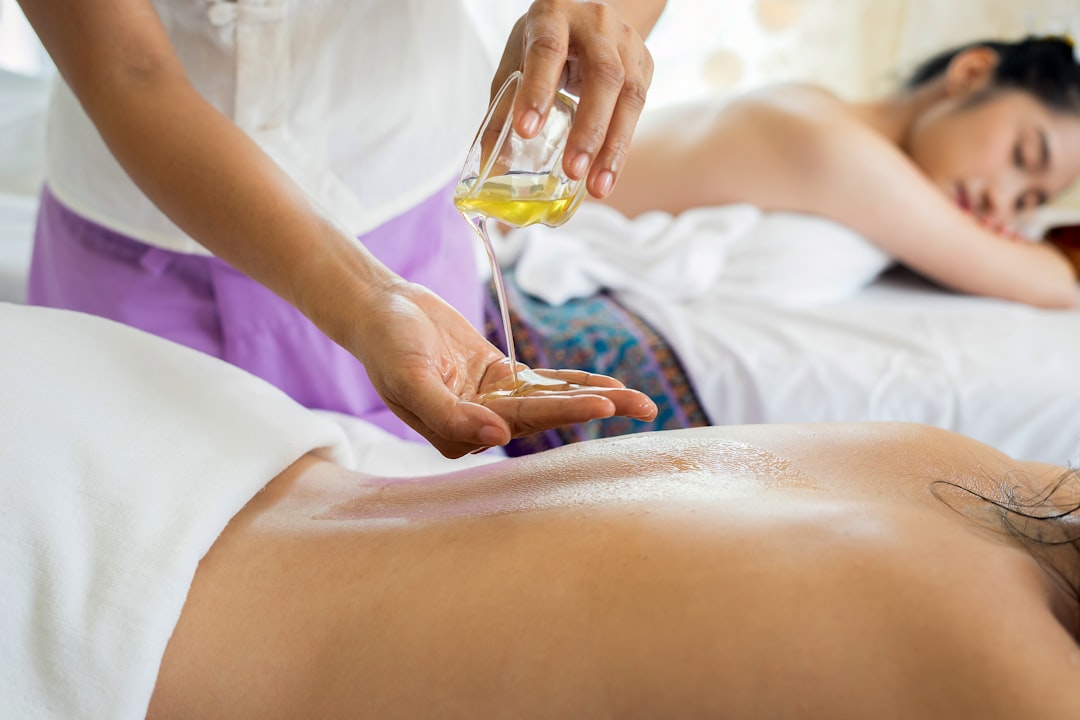Massage abuse, a growing concern in Georgia, involves non-consensual practices within spa treatments, leading to increased legal cases and public awareness. Specialized Georgia massage abuse law firms play a vital role in protecting clients from exploitation by advocating for victims, collaborating with authorities, and offering emotional support. Survivors face lasting emotional trauma, making healing and rebuilding trust challenging. Preventative measures, including self-care, campaigns, and support groups, are essential to help survivors process experiences and create secure connections while contributing to broader massage abuse prevention efforts in Georgia.
Massage spa abuse, a growing concern in Georgia, casts a long shadow on survivors’ future relationships. This article delves into the multifaceted impacts of such abuses, exploring legal perspectives through the lens of Georgia cases and highlighting the emotional and psychological scars left behind. We also discuss preventative measures and strategies for building healthy relationship dynamics post-abuse, emphasizing the crucial role that massage abuse law firms in Georgia play in supporting survivors’ healing and justice.
Understanding Massage Spa Abuse: A Growing Concern in Georgia

Massage spa abuse, a hidden yet concerning issue in Georgia, refers to instances where clients are subjected to non-consensual or harmful practices during their spa treatments. This growing concern has prompted increased awareness and stricter regulations within the state’s massage industry. Georgia law firms specializing in this area have seen a rise in cases involving sexual harassment, assault, and even human trafficking within high-end spas and massage parlors.
The prevalence of massage abuse highlights the need for better protection for vulnerable individuals seeking relaxation and rejuvenation. Many victims may hesitate to speak up due to fear or shame, making it crucial for law enforcement and legal professionals to recognize these patterns and provide support. By addressing massage spa abuse through robust legal frameworks and public education, Georgia can ensure safer practices and foster healthier relationships between clients and service providers.
Legal Perspectives: The Role of Massage Abuse Law Firms in Georgia Cases

In Georgia, the legal landscape regarding massage abuse is shaped by specific laws and regulations that aim to protect clients from exploitation and assault within spa settings. Massage abuse law firms play a pivotal role in this context, providing expertise and advocacy for victims seeking justice. These law firms specialize in handling cases involving sexual harassment, assault, and misconduct by massage therapists or spa employees. By understanding the intricate legal nuances of Georgia’s massage therapy industry, these law firms offer crucial support to clients who have experienced abuse, helping them navigate the complex process of reporting, investigating, and pursuing legal action.
Through their work on various Georgia cases, massage abuse law firms have contributed significantly to raising awareness about this hidden issue. They collaborate with local authorities, medical professionals, and support organizations to ensure that victims receive the necessary care and that perpetrators face legal consequences. Their efforts not only provide closure for individuals affected by massage abuse but also foster a safer environment within the massage therapy industry in Georgia.
Emotional and Psychological Impacts on Survivors

Survivors of massage spa abuse often bear emotional and psychological scars that can significantly impact their future relationships. The traumatic experience can lead to heightened anxiety, depression, and post-traumatic stress disorder (PTSD), making it challenging for them to trust and connect with others. Many survivors may find themselves avoiding intimate situations or struggling to communicate their needs and boundaries effectively. Massage abuse law firms in Georgia have documented cases where victims experienced long-lasting emotional distress, affecting their ability to form healthy relationships and leading to social isolation.
The psychological impacts extend beyond the individual, potentially affecting dynamics within families and support networks. Survivors may struggle with feelings of shame and guilt, which can create a barrier between them and those who care about them. This internalized trauma can make it difficult for survivors to seek help or support, further exacerbating their isolation. As such, addressing these emotional and psychological impacts is crucial in helping massage abuse survivors heal and rebuild their lives, with the potential support from local massage abuse law firms in Georgia.
Preventative Measures and Building Healthy Relationship Dynamics Post-Abuse

After experiencing massage spa abuse, survivors must navigate a complex path towards healing and rebuilding trust in future relationships. Preventative measures play a pivotal role in this journey; it involves both individual self-care practices and collective efforts to raise awareness about massage abuse law firms in Georgia and its implications. Survivors are encouraged to seek support from trusted friends, family, or professional counselors who can offer guidance and resources for healing. This includes learning healthy boundaries, communication strategies, and assertiveness skills to ensure future interactions are respectful and consensual.
Building healthy relationship dynamics post-abuse requires a conscious shift in mindset. Survivors should focus on cultivating trustworthiness, transparency, and open dialogue with potential partners. Engaging with support groups or therapy sessions can help individuals process their experiences, identify red flags, and develop coping mechanisms to navigate relationships more securely. By implementing these measures, survivors can take proactive steps towards personal growth and create healthy connections moving forward, while also contributing to a broader understanding of massage abuse law firms in Georgia and the importance of prevention.






